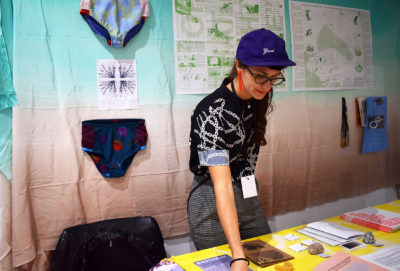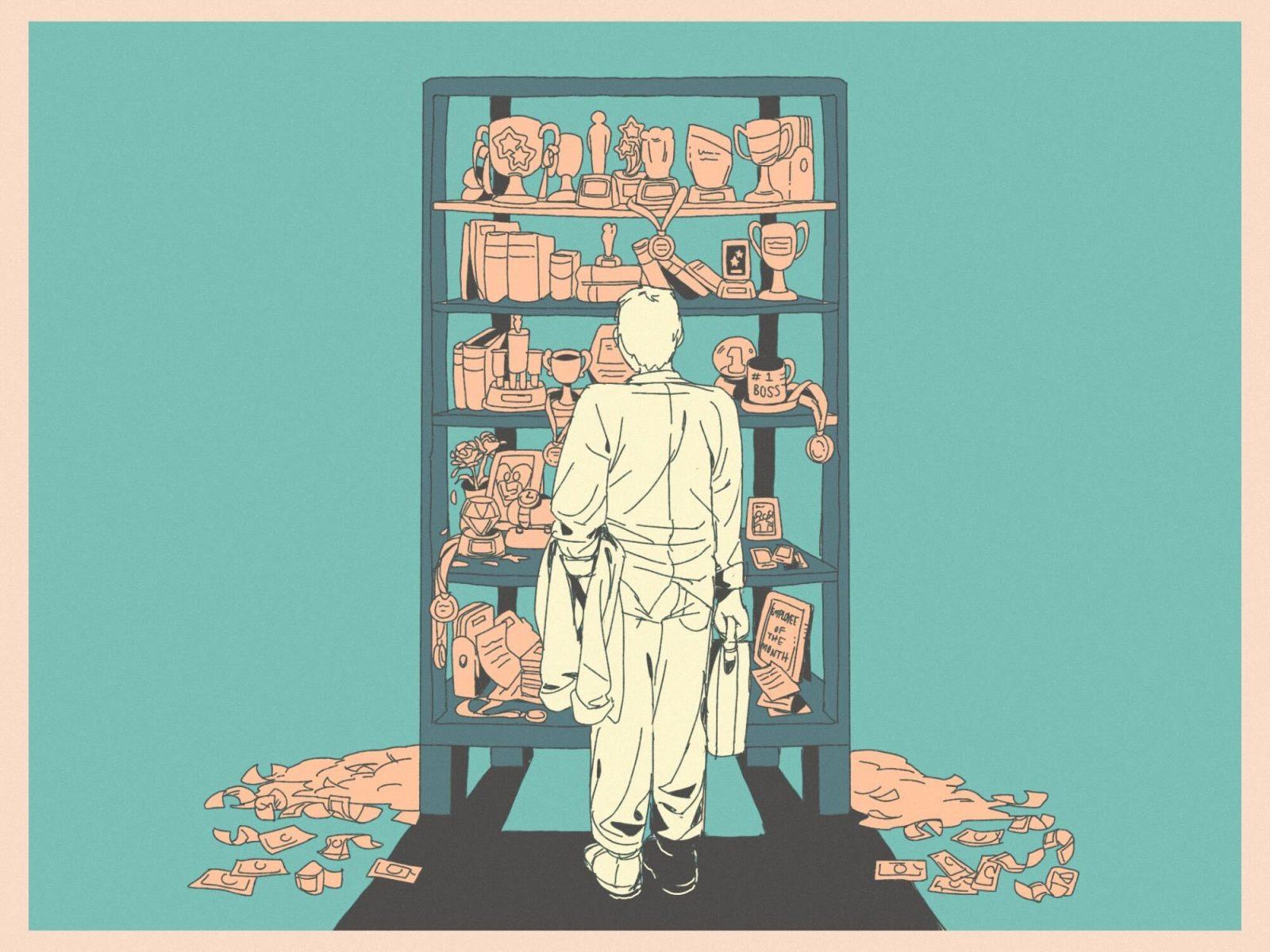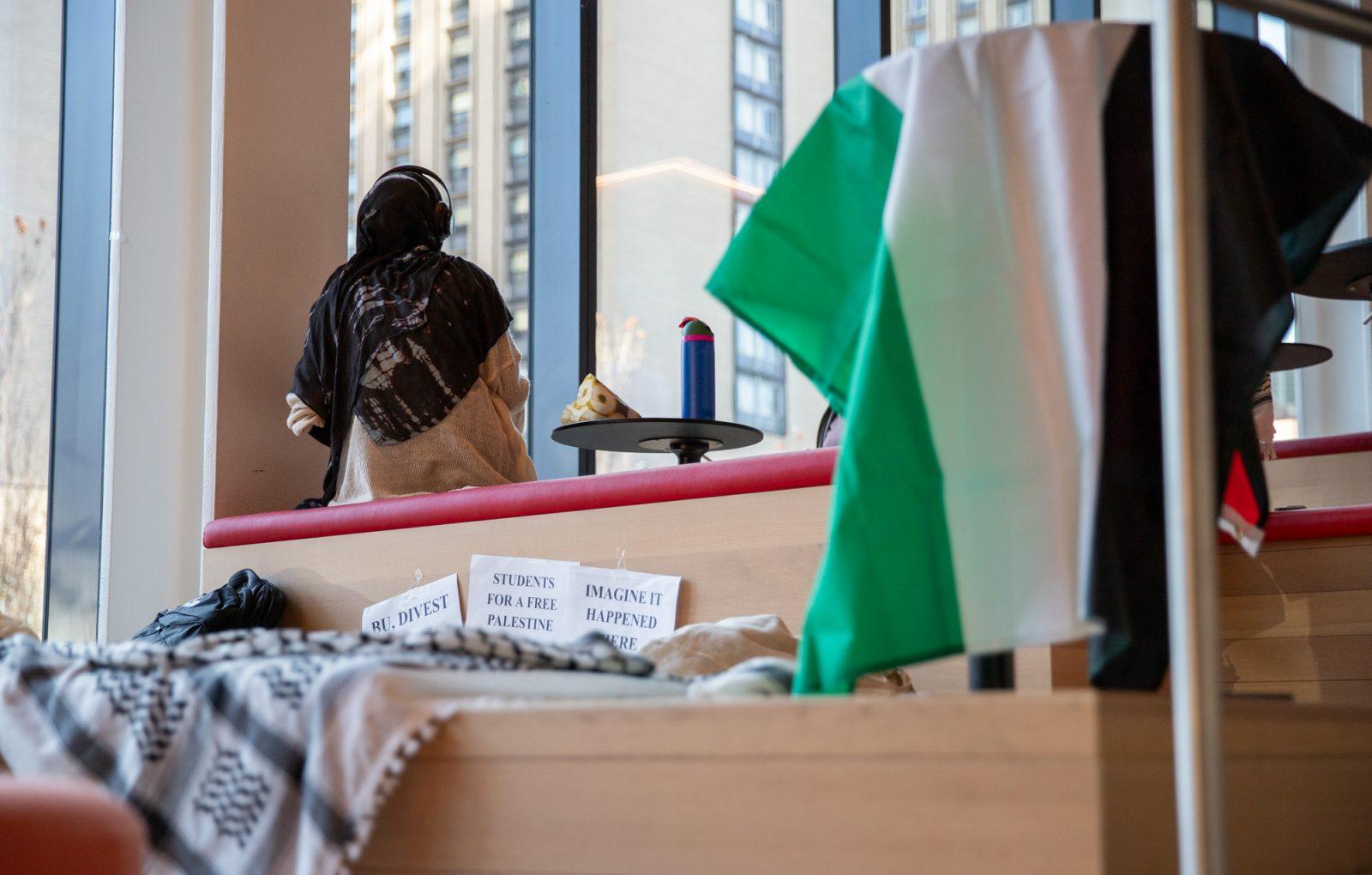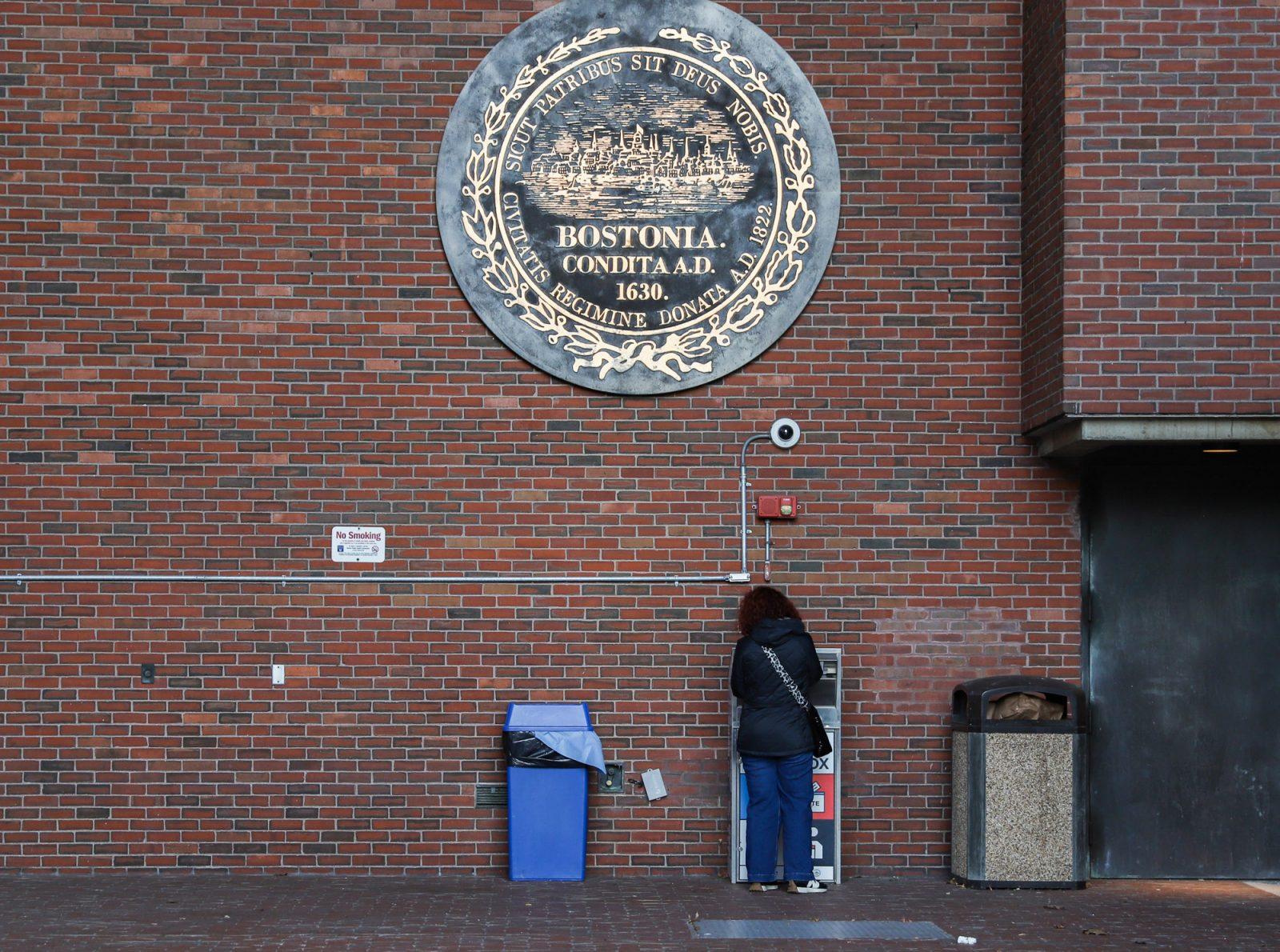
Over the weekend, artists, publishers, music makers, gallerists and zine makers occupied Boston for a celebration of creativity and innovation.
The Boston Center for the Arts hosted the first Boston Art Book Fair in partnership withBodega, a Boston-based brand and design collective. The fair brought together over 60 international and local artists that share a passion for the intersections between text and visual arts, according to a press release about the fair.
Participants were able to engage in various workshops, panels and presentations throughout the weekend, according to the book fair website. Some of these programs included a zine-making workshop, film screening and a panel discussion about graffiti as public art.
Randi Hopkins, co-founder of the Boston Art Book Fair and director of visual arts at BCA, said she has been enjoying art book fairs for awhile. She drew inspiration from the NY Art Book Fair and Printed Matter, Inc., a New York City organization and store dedicated to artists’ books.
“Books have always really interest artists; they are very visual but we also love books as objects,” Hopkins said. “They’re less expensive than fine art and more familiar to people because everyone grows up with them [books]. A lot of people have books from their youth that are very meaningful to them. It’s a really personal relationship.”
Among the many artists and exhibitors at the fair was Kathleen Sleboda, co-founder and design director of Draw Down. Sleboda explained that Draw Down is a publishing firm that she started with her husband.
According to their website, they publish small books about graphic design, typography, illustration, photography, art and architecture. They also distribute works from smaller presses and independent graphic designers.
Sleboda noted that Draw Down has been a participant of the NY Art Book Fair for five years, and the Boston Art Book Fair is another great way for local artists and artists within the region to meet. After going to art book fairs, she said she has been able to collaborate with artists from around the country and around the globe.
“Book fairs are sort of like a pollination happening. People come to a bigger book fair and they think they can go back to their community of school and start an event like this,” Sleboda said. “It’s a great way for people to share work, and I think it’s really inspiring for people to see things that are tactile and can be interacted with.”
She also noted that art book fairs can be particularly enriching for students because they’re free and a great way to connect with people, look at work, take photos and find inspiration.
Another artist and publisher at the fair was Adam Jason Cohen, a Chicago-based photographer who focuses on social landscape and human condition in the south and west sides of Chicago. He explained that most photos of Chicago fit the agenda that it’s a horrible place with no redeeming qualities.
The photographer uses art book fairs to share visual imagery that combats the photojournalism that publications such as The New York Times show their readers.
“I photograph a lot of things that are harder for publications to run. I can take my personal projects and get them to people who are interested in it,” Cohen said.
One catalyst for the creation of the Boston Art Book Fair was Oliver Mak, co-owner of Bodega. Hopkins explained that Mak approached her months ago and asked if BCA would be interested in doing a book fair.
She said her awareness of his curatorial work and small projects led Hopkins into thinking, “Yes, I’d love to see if we can work on it together.”
Michelle Wang, junior graphic designer who works at Bodega, noted the importance of the Boston art scene and a space like the Boston Art Book Fair.
“Bodega is very involved in the Boston arts community, so we were able to get more involved in this niche circle of collaborators. Artists need a platform to not only promote their artwork but to see and meet other people,” Wang said. “What’s really important about the Boston art scene is that it’s heavily dependent on artists leaning on each other, promoting each other’s work and collaborating.”
Hopkins explained why Boston was a defining location for the book fair given the number of universities and pioneering idea of the public library — saying she believes that it’s a place where the idea of the book is especially alive and vibrant.
“We had people from all over the country in the fair but we worked really hard to capture all of the specialities of how Boston loves its books,” Hopkins said. “This is something all kinds of people love.”





























































































































